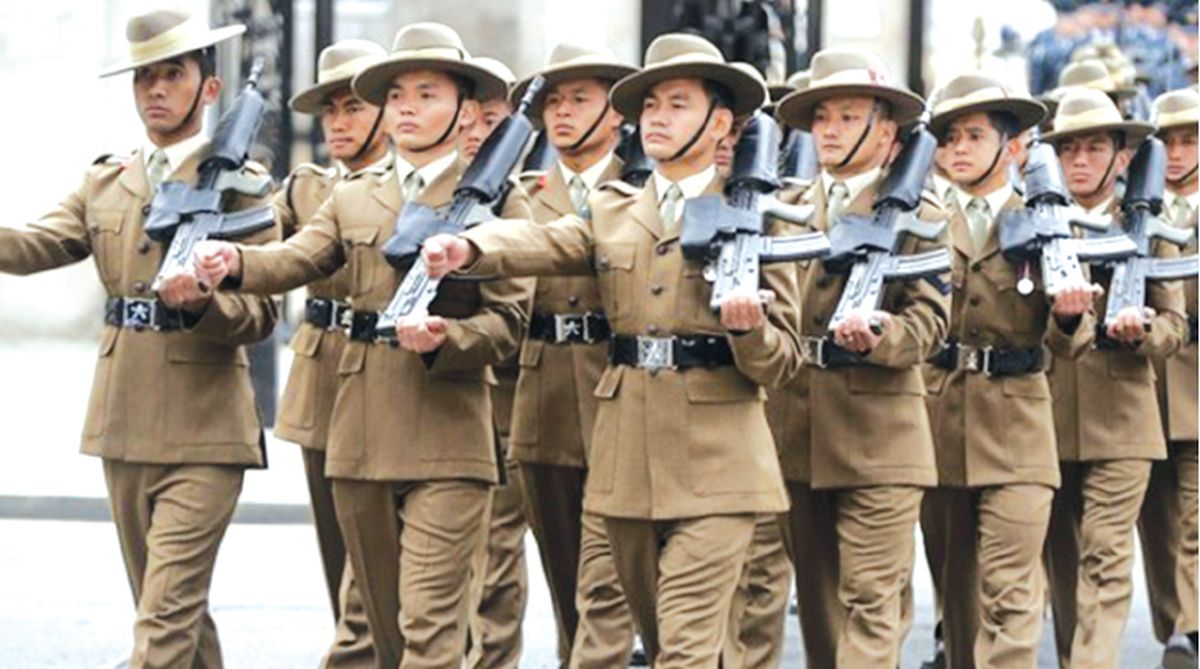Saha in Politics
The period between 1850 and 1950 is considered one of the most fertile periods of fundamental science. On the other hand, it was a critical time in the evolution of social consciousness worldwide since it witnessed two World Wars.
According to the Tripartite Agreement signed between the UK, India and Nepal in 1947, Gurkhas are an integral part of the British Army, so they should receive bravery awards, pay and benefits equal to their British counterparts.

Gurkhas, soldiers of Nepali origin, have been serving in the British Army since 1815. They fought in several wars, including the First and Second World Wars, which resulted in over 43,000 deaths, and thousands of casualties. In recognition, 13 Victoria Crosses were awarded to Gurkhas to honour their bravery.
According to the Tripartite Agreement signed between the UK, India and Nepal in 1947, Gurkhas are an integral part of the British Army, so they should receive bravery awards, pay and benefits equal to their British counterparts.
Advertisement
However, contrary to the Tripartite Agreement, the British government fixed the Gurkhas’ pay, pensions and welfare as per the Indian Pay Code. As a result, the pension differences between British and Gurkha soldiers reached 958 per cent in 1989. British Gurkhas have been fighting for equal pay, pensions and welfare since 1990.
Advertisement
In 2017, all Gurkha organisations united and opted for diplomatic means to solve outstanding issues at the initiation of the Nepal Embassy in London. Gurkha organisations jointly submitted their 36 demands to the Minister of State for the Armed Forces John Mark Lancaster in the presence of Nepali Ambassador Dr Durga Bahadur Subedi on 28 March 2017.
In response, Minister Lancaster formed a Gurkha Technical Team (GTT) to investigate the demands submitted by the Gurkha organisations and produce a report and agenda for Britain-Nepal bilateral talks. After a series of meetings, the GTT submitted its report with a 13-point agenda on 24 March 2018 to the British and Nepal governments with the recommendation of forming negotiation teams from both countries to address outstanding Gurkha issues at the earliest opportunity.
The main demand of the British Gurkhas is that all Gurkhas must be treated on an equal footing to their British counterparts as set out in the Tripartite Agreement. This was applied to Gurkha Sandhurst-Commissioned Officers and other Gurkhas enlisted after 1 October 1993, but it is still outstanding for those enlisted before that date.
According to the UK Ministry of Defence, there are 22,000 ex-Gurkhas and widows in this group. The majority retired at the 15-year pensionable point. For British soldiers, their pensionable point is 22 years. British and Gurkha pensionable points are different, and their pensions are calculated on their average life expectancy and longevity. Hence, for Gurkhas who have done 15 years, their service and pension should be in proportion to British soldiers’ 22 years. In addition, Gurkhas enlisted before 1993 have not been paid liberal and disability pensions equal to their British counterparts, so these also need to be equalised as per the Tripartite Agreement.
Gurkhas who were made redundant before 1975 only received redundancy packages of £320, £360 and £420 respectively based on their length of service. As per the Armed Forces Pensions Act 1975, they are also not entitled to preserved pension, so their redundancy packages should be reviewed, and compensation given to bring them into line with their British counterparts. Those discharged after 1975 should be entitled to preserved pension. There are approximately 6,500 and 145 Gurkhas discharged before and after 1975 respectively without service pensions.
Due to the meagre redundancy packages and poor welfare facilities provided in Nepal, Gurkhas have decided to migrate to the UK for better lives; the reality, however, is that they are living in poverty on paltry incomes. If compensated suitably, in the long run, it will reduce the financial burden on the National Health Service, housing and other welfare services. Gurkhas should qualify for state pension if they have served for more than 10 years, and this should be paid when they reach the qualifying age.
Those who were made redundant with less than 10 years’ service should also be considered for state pension, as they would have paid National Insurance when based in the UK, despite not having received the same pay as their British counterparts. Further consideration needs to be given in relation to National Insurance contributions and generated benefits. Thus, the British Government should provide medical cover in Nepal in the same manner as the National Health Service provides in the UK.
On the grounds of historical injustice, goodwill payments should be made to the children of Gurkha soldiers made redundant, or who died on pension. Also, all children above the age of 30 should be given a UK settlement visa instead of on a case-by-case basis. Finally, veterans on Pension Credit should be allowed to go to Nepal for 90 days (old policy) with loss of benefits, as it is not possible to reach their villages in the hills and back to the UK under the current 28-day policy.
In summary, in the changed context, all ex-Gurkha organisations now believe in political and diplomatic means to solve the remaining issues. Hence, both British and Nepal governments should seriously consider the issues put forward for bilateral talks, as old, frail veterans are rapidly dying off.
The Kathmandu Post/ANN.
Advertisement